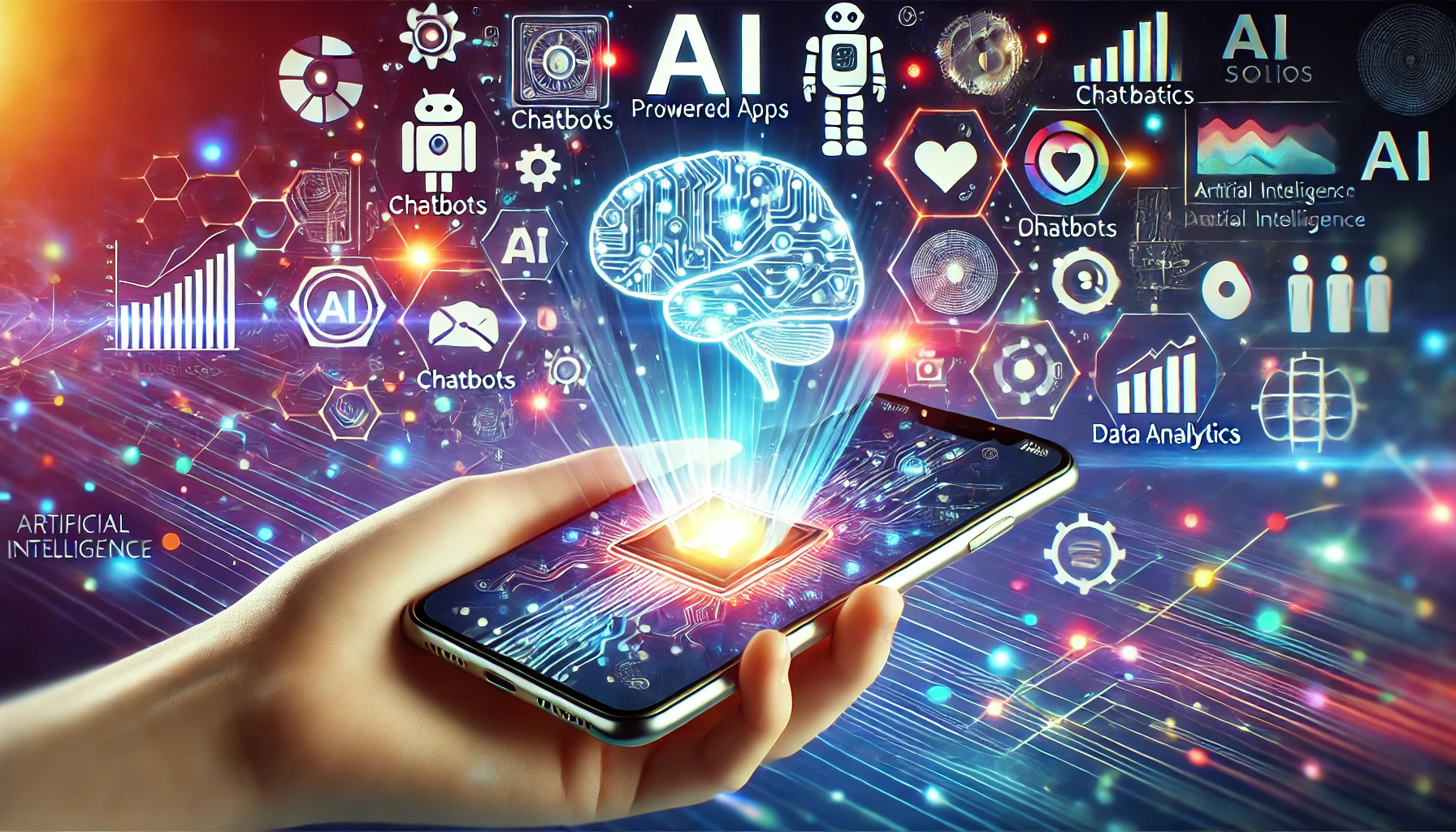
AI-powered mobile app development by creating smarter, more intuitive, and highly personalized user experiences. From voice recognition to predictive analytics, AI enables apps to adapt to user needs seamlessly. This article explores the role of AI in mobile app development, its benefits, and how it’s transforming the way we interact with technology.
What is AI-Powered Mobile App Development?
AI-powered app development incorporates machine learning, natural language processing, and data analytics into mobile applications. These technologies enable apps to analyze data, learn from user interactions, and deliver personalized results. Popular AI features in mobile apps include:
- Voice Assistants (e.g., Siri, Google Assistant)
- Chatbots for customer support
- Recommendation Systems (e.g., Netflix, Amazon)
- Image Recognition for social media filters
Key Benefits of AI-Powered Mobile Apps
1. Enhanced Personalization
AI analyzes user behavior to offer tailored recommendations and content. For instance, Spotify’s AI-driven algorithms curate personalized playlists based on listening habits.
2. Improved User Engagement
AI makes apps interactive and engaging by enabling features like chatbots, which provide instant support and assistance. Apps like Duolingo use AI to adapt learning exercises based on a user’s progress.
3. Efficient Data Processing
AI processes large volumes of data in real-time, helping apps deliver faster and more accurate responses. This is particularly beneficial for apps in healthcare or finance.
4. Automation of Tasks
AI automates repetitive tasks like scheduling, email sorting, or expense tracking, making apps more functional and user-friendly.
AI Technologies Used in Mobile Apps
1. Machine Learning (ML)
ML enables apps to improve functionality over time by learning from user data. For example, predictive typing in keyboards like SwiftKey is powered by ML algorithms.
2. Natural Language Processing (NLP)
NLP allows apps to understand and respond to human language. Virtual assistants like Alexa use NLP to interpret commands and provide accurate responses.
3. Computer Vision
Computer vision enables apps to recognize images, faces, and objects. Social media apps like Snapchat use this technology for face filters and augmented reality effects.
4. Predictive Analytics
AI uses predictive analytics to forecast user behavior. For example, fitness apps like MyFitnessPal suggest workout routines based on past activity.
Examples of AI-Powered Apps
- Google Maps
AI optimizes routes, predicts traffic, and provides real-time updates for seamless navigation. - Netflix
Netflix’s recommendation engine analyzes viewing history to suggest shows and movies users are likely to enjoy. - FaceApp
FaceApp uses AI to transform photos, applying filters, aging effects, and more with high accuracy.
Challenges in AI-Powered Mobile App Development
1. Data Privacy Concerns
AI relies heavily on user data, raising concerns about how this data is stored and used. Developers must implement robust security measures to protect user information.
2. High Development Costs
Integrating AI technologies requires skilled developers and advanced tools, which can increase development costs.
3. Complexity in Integration
Incorporating AI into existing systems can be challenging, especially for apps with limited processing power.
Best Practices for AI-Powered App Development
1. Define Clear Objectives
Identify the specific user problems your AI-powered app will address. A focused approach ensures efficient use of AI capabilities.
2. Prioritize Data Security
Ensure all user data is encrypted and compliant with data protection regulations like GDPR.
3. Start Small
Begin with simple AI features, such as a chatbot or recommendation engine, and scale up as needed.
4. Use Cloud-Based AI Solutions
Platforms like Google AI and AWS AI make it easier to integrate AI without significant investment in infrastructure.
5. Regularly Test AI Models
AI models need constant testing and retraining to maintain accuracy and reliability.
The Future of AI in Mobile App Development
AI is set to become even more integral to mobile app development. Emerging technologies like edge AI, which processes data locally on devices, will enable faster and more secure applications. Additionally, advancements in generative AI could revolutionize app design and content creation, making apps even more dynamic and user-friendly.
Conclusion
AI-powered mobile app development is transforming user experiences by making apps smarter, faster, and more personalized. While challenges like data privacy and integration remain, the benefits far outweigh the obstacles. By leveraging AI technologies and following best practices, developers can create apps that meet the needs of today’s tech-savvy users.
Start exploring AI for your next mobile app and watch how it enhances user engagement and functionality like never before!



